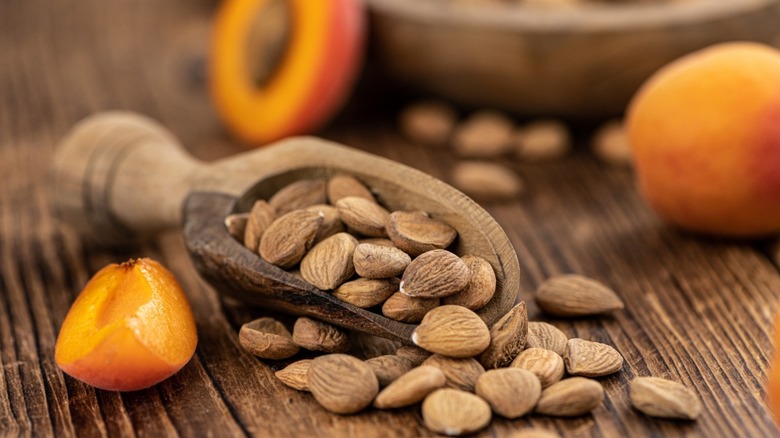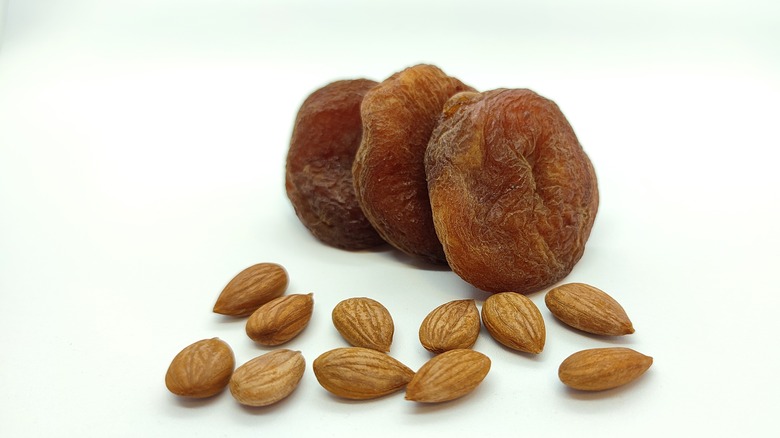Read This Before You Eat Apricot Seeds
Food myths abound and misinformation spreads like wildfire these days, especially when it relates to "miracle cures" or dubious statements promoting untested health treatments for chronic diseases. One mythical claim out there is that apricot seeds or "kernels," can be used to fight cancer. According to Medical News Today, "there is currently no research to support the claim that apricot seeds can fight cancer." Furthermore, an apricot kernel contains a naturally-occurring compound called amygdalin, which is converted into cyanide in the stomach (via WebMD). Cyanide is poisonous and poses a significant health hazard.
The CDC cautions that exposure to even a small amount of cyanide whether through breathing it, ingesting it through foods that contain it, or absorbing it through one's skin, can lead to symptoms such as dizziness, headache, nausea and vomiting, rapid breathing and heart rate. Long-term effects of severe cyanide exposure may include developing "heart, brain, and nerve damage." There are estimates indicating that "eating 50 to 60 apricot kernels could deliver a lethal dose of cyanide." The European Food Safety Authority has warned that "eating more than three small raw apricot kernels, or less than half of one large kernel, can exceed safe levels."
Apricot kernels and cancer
Amygdalin from apricot kernels has been used to produce laetrile, also called B-17, which some people have misguidedly used as an alternative treatment for cancer (via Medical News Today). People take it in the hopes that it will boost their energy levels, improve their health and overall sense of well being, detox the body, and prolong their life. The FDA notes that laetrile began being promoted as a cancer treatment in the 1950s, but it was "viewed as an unapproved drug," deemed unsafe for human use. Laetrile is available in skin lotions, oral tablets, and injections, and its side effects closely parallel those of cyanide poisoning.
While there haven't been any controlled clinical trials done on laetrile's effectiveness as a cancer treatment, the National Cancer Institute states that "anecdotal reports and case reports have not shown laetrile to be an effective treatment for cancer." Another substance found in apricot kernels, B-15, or calcium pangamate, touted as a dietary supplement, has been promoted as a cancer-fighting drug as well, but like laetrile it has never been FDA-approved for medicinal uses, and according to The Journal of the American Medical Association, it may actually cause cancer.
Whenever you hear or read something that sounds too good to be true, it usually is, so it's always better to consult the experts first, particularly when it concerns your health. If a food trend making the rounds on social media sounds suspicious, there is probably a good reason for it.

